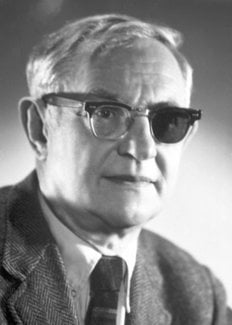Julius Axelrod
Biographical

Julius Axelrod was born on May 30th, 1912, in New York City. He obtained his B. Sc. in 1933 at the College of the City of New York, M. A. in 1941 at New York University, and Ph. D. in 1955 from the George Washington University.
From 1933 to 1935 he was Laboratory Assistant at the Department of Bacteriology of New York University Medical School; from 1935-1946 he was Chemist at the Laboratory of Industrial Hygiene; 1946-1949, Research Associate, Third New York University Research Division, Goldwater Memorial Hospital; 1949-1950, Associate Chemist, Section on Chemical Pharmacology, National Heart Institute, NIH; 1950-1953, Chemist, National Heart Institute, NIH, where he became Senior Chemist in 1953, and was appointed Chief of the Section on Pharmacology, Laboratory of Clinical Science, National Institute of Mental Health, Health Services and Mental Health Administration, Department of Health, Education and Welfare in 1955.
The following honors and awards were granted to Dr. Axelrod: National Science Foundation Travel Award, 1958; Corresponding Member of the German Pharmacological Society, 1959; International Physiological Union Travel Award, 1961; Otto Loewi Memorial Lecture, New York University Medical School, 1964; Distinguished Research Award, Assoc. Res. Nerv. Mental Diseases, 1965; Karl E. Paschkis Memorial Lecture, Philadelphia Endocrine Society, 1966; Honorary Sc.D., University of Chicago, 1966; The Gairdner Foundation Award, 1967; National Institutes of Health Lecture, 1967; Nathanson Memorial Lecture, University of Southern California, 1968; Distinguished Achievement Award, George Washington University, 1968; Superior Service Award, DHEW, 1968; Claude Bernard Professorship, University of Montreal, 1969; Distinguished Service Award, DHEW, 1970; Distinguished Service Award, Modern Medicine Magazine, 1970.
Dr. Axelrod is a Member of Sigma Xi, International Brain Research Organization, American Chemical Society, American Society of Pharmacology and Experimental Therapeutics, American Society of Biological Chemists, American Association for the Advancement of Science, and a Fellow of the American College of Neuropsychopharmacology, 1961 (Member of the Council, 1966-1969).
Dr. Axelrod is a Member of the editorial boards and committees of a number of journals, among which: Journal of Pharmacology and Experimental Therapeutics, Journal of Medicinal Chemistry, Life Sciences, Circulation Research, Journal of Neurobiology, Pharmacological Research Communications, Journal of Neurochemistry, International Journal of Psychobiology.
In 1970 he beame a Member of the Psychopharmacology Study Section, National Institute of Mental Health.
Julius Axelrod married Sally Taub in 1938; they have two children.
This autobiography/biography was written at the time of the award and first published in the book series Les Prix Nobel. It was later edited and republished in Nobel Lectures. To cite this document, always state the source as shown above.
Julius Axelrod died on December 29, 2004.
Nobel Prizes and laureates
Six prizes were awarded for achievements that have conferred the greatest benefit to humankind. The 14 laureates' work and discoveries range from quantum tunnelling to promoting democratic rights.
See them all presented here.
